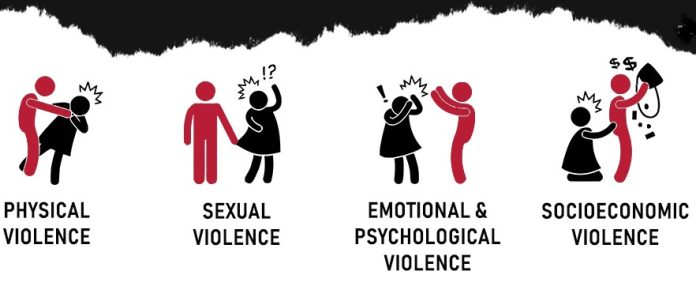A middle-aged man, identified as Samaila, was arrested in Katsina following the discovery that he locked his two wives, Fatima Salisu and Hadiza Musa, in a room in his house, chained them and subjected them to inhuman treatment for 10 months.
Fatima is from MarkeMagaji Garin village while Hadiza is from Kalyarubandaba village, both in Katsina State. Both women were aged 20 years at the time and did not have children for Samaila.
Samaila, who was living with the two wives at Yannadabaiyye village in the Rimi Local Government Area of the state, was picked up by the police from the Rimi divisional police headquarters before he was transferred to the State Criminal Investigation and Intelligence Department at the Katsina police headquarters for further interrogation.
Samaila threatened to kill any of us found menstruating or with blood stains
Reprieve came for the two women when Hadiza’s mother paid her a surprise visit in the village. It was learnt that the old woman pleaded with Samaila to allow her go away with a sewing machine she bought for Hadiza since she (Hadiza) was not using it there.
Samaila, it was learnt, refused to release the sewing machine. Instead, he allegedly assaulted her physically.
The woman reported the incident at the Rimi divisional police headquarters, which prompted policemen to visit Samaila’s house, where the two women were found under terrible conditions.
Fatima and Hadiza, who spoke in Hausa, alleged that Samaila locked the two of them inside a room, shaved their pubic hair and cut their fingernails.
He chained us and only removed the chains whenever he wanted to have sex with us right inside the room and in the presence of the other person
They alleged further that he prepared a concoction with the items and forced them to drink.
Hadiza further alleged, “Samaila never allowed us to leave the room. We did everything in the room; we bathed there; we answered the call of nature there. He chained us and only removed the chains whenever he wanted to have sex with us, and he would have sex with us inside the room and in the presence of the other person.”
Hadiza also showed her back, which was riddled with scars, sores and injuries sustained from the beatings she allegedly received from Samaila whom she said used to flog her and Fatima with cable.
Although their offences were not exactly stated, Fatima disclosed that she was the first to be locked in the room 10 months ago before he married Hadiza and also locked her up in the room 10 weeks after.
I was the first to be locked in the room 10 months ago before he married Hadiza and also locked her up in the room 10 weeks after -Fatima, SGBV survivor
Fatima alleged that Samaila threatened to kill any of them found menstruating or with blood stains.
None of the two women could say what Samaila’s job or business was, although they said he always came home with wads of N500 notes.
A Katsina-based non-governmental organisation, Gender Associates and Social Inclusion, showed interest in the plight of the two women and ensured that Samaila faced the wrath of the law.
The spokesperson for the organisation, Hajiya Rabi Muhammed, told Saturday PUNCH that the association took the women to a hospital for medical checkup and bought some foodstuffs for them before they were returned to their respective villages.
The women didn’t know what Samaila’s job or business was, but he always came home with wads of N500 notes
She added, “We took the two women to a hospital in Katsina, we counselled them and worked on their badly damaged psyche. We also gave them some foodstuffs. Those were the interim arrangements we made for them pending the time the police would complete their investigation on Samaila. We shall definitely empower them to help them pick up again.”
Reprieve came for the two women when Hadiza’s mother paid her a surprise visit
While the NGO says it awaits the conclusion of police investigations, there are strong indications that the governors, concerned government officials, community leaders, traditional rulers, religious leaders, civil society organisations and well-meaning individuals, especially in northern Nigeria, would have to do more to put an end to the discrimination against women and children, not only to save their lives but accord them their constitutionally-guaranteed rights to life, dignity, education and others.


